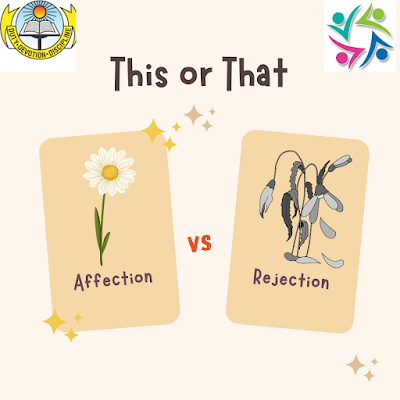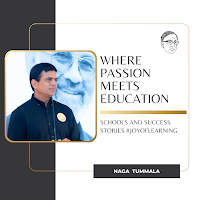Summary of the reading sessionAddressing Student Disciplinary Issues and Teacher's Role
We read about disciplinary issue involving students Arjun and Rakhi. Roma, their teacher, disagreed with the punishment and insisted on talking to the parents first before disciplining the students. Roma emphasised the need to understand the student's perspective and only jump to conclusions with giving them a fair chance. The discussion highlighted the importance of respecting teachers and allowing them to handle situations with their students. Roma firmly stood up for her students despite opposition from senior colleagues.
Addressing Student Misbehavior and Consequences
Roma discussed the actions of two students, Arjun and Rakhi, who had been caught talking on the terrace, a prohibited area, and bunking the morning assembly. Learning emphasised the importance of understanding the consequences of their actions, which had given the school administration, teachers, and other students a wrong message. She also highlighted the need to adapt to new times and understand the younger generation's perspective. The students apologised for their actions, but Roma continued questioning them to ensure they understood the gravity of their mistakes.
Relationship Issues and Physical Intimacy Discussion
Arjun, Rakhi, and their friends discussed their relationship issues. Rakhi expressed her need for more time due to the impact of the relationship on her life at home and school, while Arjun argued that the relationship was not affecting his life. They also discussed the influence of their friends on their relationship, with Arjun mentioning that Anthony had advised him that Arjun liked Rakhi. The conversation ended with Rakhi expressing her desire to end the relationship due to the pressure it put on her and the fear of a breakup. Additionally, Rakhi explained the four phases related to physical intimacy, which led to an unintended revelation by Arjun and Rakhi in front of their teacher.
Discussing Friendship, Autonomy, and Consequences
Sandeep expressed concerns about friends' influence on personal decisions and the potential consequences of such decisions. Anubha mentioned the importance of individual autonomy and the possible impact of their actions on others. The conversation also touched on the theme of friendship and its potential challenges. The conversation ended with Learning promising to work on being just friends to facilitate a meeting with their parents.
Building Self-Confidence and Trust in Education
Roma shared her experience of receiving love letters at 16, which helped her cope with negative comments and build self-confidence. She connected this to Rakhi's situation and highlighted the importance of self-confidence and teacher-student trust. Roma welcomed Arjun's and Rakhi's parents to discuss punishing their children for their mistakes. The parents agreed with the school's decision and decided to remove their children's privileges.
Addressing Technical Difficulties and Punishments
Our meeting was marked by technical difficulties, with participants experiencing intermittent audio and video issues. Despite these disruptions, we managed to continue the session and the discussion on punishments. Sandeep emphasised the importance of understanding how these punishments can be handled and the need for better devices and connections to prevent future disruptions.
Navigating Teenage Years: Challenges and Support
The discussion revolved around the challenges of parenting teenagers, particularly those between the ages of 14 and 16. The participants acknowledged the significant changes during this period, including shifts in friendships' cognitive, emotional, physical, and personality growth. They emphasised the importance of understanding these changes to better support their children. The conversation also touched on the role of schools and parents in navigating these challenges, focusing on providing guidance and support during this confusing phase of life.
Teenagers' Behavior and Relationship Dynamics
The meeting revolved around the issues faced by Rakhi, a teenage girl, and Arjun, a teenage boy. The discussion centred on the reasons behind their behaviour, with Roma suggesting that Rakhi might seek self-assurance through a relationship due to her insecurities. On the other hand, Mr Rana argued that Arjun was a confident boy and didn't need to seek self-assurance through a relationship. The group also discussed the possibility of Arjun missing his mother or sister, which could explain his attachment to Rakhi. The conversation ended with the group agreeing that trust should be given to teenagers and that they should not be punished for their actions.
Teenage Relationships: Emotional Challenges and Communication
The discussion revolved around the emotional and psychological aspects of teenage relationships, particularly the challenges teenagers and their parents face. The participants acknowledged that teenagers often experience intense emotional connections, which can be overwhelming and all-consuming. They also recognised that teenagers are young and immature and usually try to deal with their emotions independently. The importance of open communication and understanding was emphasised, suggesting that parents should not react as anticipated but instead give their children a chance to talk about their experiences. The participants also discussed the potential dangers of physical intimacy in certain relationships and the need for teenagers to learn how to say no and leave situations when necessary.
Teenage Self-Esteem and Brain Development Discussion
Roma and Mrs. Vishwanathan discussed the importance of self-esteem in teenagers and advised Rocky's mother to work on his low self-esteem by encouraging self-love. Roma also explained the development of the teenage brain, emphasising emotional sensitivity and the ongoing development of the prefrontal cortex. She shared her experience of a tense day at school filled with drama and tension and received a warning from Simon about her actions, particularly her involvement in taking four girls to a club.
Chapter Completion and Assignment Discussion
Learning discussed the completion of the current chapter and the assignment planned for it. The assignment was shared in the Joy of Learning Library and Dehradun. Learning encouraged everyone to work on it in groups, creating videos as suggested or coming up with reflections. The next session was set to focus on reflections from teachers across schools. Learning also emphasised the importance of reading and leading, urging everyone to try to read the assigned book. The conversation ended with a reminder to refer to the blog post and start working on the assignment.
AI-generated content may be inaccurate or misleading. Always check for accuracy.












.png)

